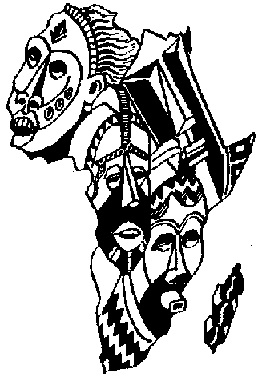Sudan: War Resumes
Two generals vie for the vast resources of Africa’s third largest country; ordinary people are caught in between.
Two generals vie for the vast resources of Africa’s third largest country; ordinary people are caught in between.
The following article was published in the July-August 2023 issue of NewsNotes.
After a brief truce, the brutal war in Sudan resumed on June 20. The United States and Saudi Arabia had negotiated the three-day truce to enable delivery of humanitarian aid to the beleaguered civilian population.
The war first began on April 15 between a rebel group, Rapid Support Forces (RSF), led by General Mohamed Hamdan Dagalo, popularly known as Hemedti, and the government troops headed by General Abdel Fattah-al-Burhan. The RSF is an independent militia that evolved from the fierce Janjaweed group, founded by the deposed dictator Omar al-Bashir, that ravaged Darfur Province some twenty years ago.
The RSF aligned itself with the main government army and cooperated in the 2021 coup that overthrew the democratically elected government. That cooperation appears to have soured in a dispute between the two generals over control of mineral resources, particularly the lucrative gold mines in Darfur.
According to the UN Refugee Agency, since the outbreak of hostilities, more than three thousand people have been killed; 2.48 million people have fled their homes, over a half million to neighboring countries as refugees; and an estimated 25 million, over half of the country’s population, are in desperate need of humanitarian assistance. In neighboring Chad, Doctors Without Borders said at least 600 people arrived from Sudan with gunshot wounds.
The United States attributed the violence primarily to RSF and affiliated militias, which have been accused of looting people’s homes in the city of Khartoum and other towns in central and western Sudan, as well as looting hospitals, causing extreme medical care scarcity. Water and food are also running scarce. Corpses have been left on the streets for days as family members are too afraid to retrieve them.
The horrific fighting between the two armies and the impunity with which soldiers engage in gross violations of human rights led to the representative of the UN Human Rights Council to declare: “What is going on is as bad as anything I have ever seen in conflict zones over the course of my long career.”
United Nations experts expressed fears that Sudan was on course to being a failed state. Volker Turk, the High Commissioner for Human Rights at the UN, stated, “This is a reckless, senseless conflict taking place in a context of total impunity. It is a human rights and humanitarian crisis unfolding at an alarming rate and on a devastating scale with a complexity not seen before in Sudan.”
Attempts by the United Nations to mediate were rebuffed by de facto ruler General Burhan, who claimed that the UN envoy Volker Perthes had exacerbated the conflict when Perthes criticized both sides. Burhan asserts that the RSF are rebels, and he is justified in putting down the rebellion. He likewise objected to attempts from Kenya to negotiate a long-term ceasefire, claiming that Kenya’s president William Ruto is “biased” for saying that both generals are complicit in creating the conflict. Burhan has also rejected face-to-face meetings with Hemedti.
Archbishop Luís Miguel Muñoz Cárdaba, Apostolic Nuncio to Sudan and Eritrea, describes the situation as “not a religious war, for the moment, not even a civil war…. It is a conflict between two powerful military groups, and in between is the civilian population who suffer dramatically as a result.”
More than 400 miles south of the capital city of Khartoum, Maryknoll Fr. Tom Tiscornia reports of fighting in the Nuba Mountains where another major rebel group, the SPLA (Sudan People’s Liberation Army), seems to have allied with the RSF to attack Sudanese Armed Forces in the southern regions. “At our hospital here, the wounded are brought for healing,” Fr. Tiscornia wrote.
Life must go on for everyday people, Fr. Tiscornia said. “With the rains, people are busy in their fields.” But once things settle, there will be much to put back together.
“The churches are for the most part not functioning,” Fr. Tiscornia said. “In our diocese of El Obeid, the parishes in Darfur have no presence of priests. Two who had been there have been assigned to come here to Nuba. Both are from Nuba.”
Fr. Tiscornia commented on another piece of sad news. Former bishop of El Obeid, Macram Max Gassis, who was widely known for speaking out against human rights abuses in Sudan before a committee of the U.S. Congress in 1988, died on June 4. Bishop Gassis had been reportedly unwell for some time and passed away while visiting relatives in Pennsylvania. “He wished to be buried in Khartoum but had to be buried in Pennsylvania,” Fr. Tiscornia said, due to the conflict. “Hopefully in the future his wish will be fulfilled.”

